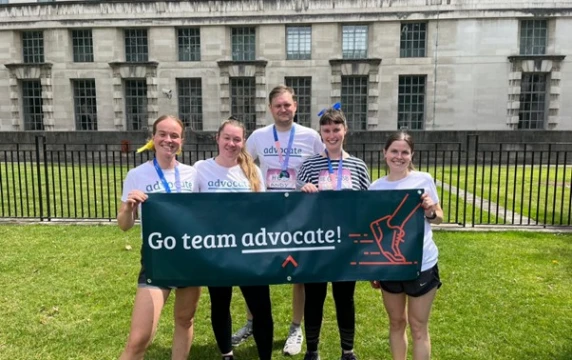How the accusation arose
Ruby is a single mother on a low income, attempting to complete her law degree at university while working nights in a supermarket. She applied for a student loan and a childcare grant from Student Finance England (SFE) so that her son could be looked after while she studied. Throughout 2016 and 2017, Ruby paid for her son’s childcare with the grant and was continually told by the after-school club that she was in debt to them. Often in a rush and eager to not be in arrears, she paid the claimed debt, resulting in an increase in her childcare costs.
SFE contacted the childcare provider for Ruby’s invoices and were told that her childcare costs were significantly less than the money she had been claiming from them. The debts claimed by the childcare provider were not supported by any invoices and the provider had kept no official record of the extra money Ruby had paid them. Ruby denied any wrongdoing but the discrepancies led her to being investigated by the Student Finance Counter Fraud Team, which deemed her unfit to receive student support.
Ruby said: “I thought I was losing my mind. I couldn’t sleep, I was always crying and I shut everyone out. I knew I was paying money but not getting receipts. I was always going to the cash machine and taking money out and paying when I picked up my son. It’s like a sharp knife has been put inside your heart when you’re being accused of something you haven’t done."
The aftermath
Ruby appealed the decision to withdraw funding, but it was upheld. Ruby requested a review from an independent assessor, but it failed and she was left without any financial support, meaning she had to withdraw from her studies. “I wanted to see them face to face but they wouldn’t meet me, it made me feel worthless and I lost my self-esteem. It was the worst feeling ever,” she said.
In the meantime, the events caused Ruby to suffer from severe stress. She endured multiple mental health problems and was put on anti-depressants to help her cope.
After several years of struggling to prove that she didn’t commit fraud, Ruby faced having to repay around £4,600 in student funding, the prospect of being unable to finish her degree and was dealing with allegations against her that would negatively impact her future employment prospects and credit rating. Having exhausted all appeal options, Ruby went to see Citizen’s Advice and her MP, who referred her to Advocate for help.
Finally finding some help
Advocate connected Ruby with a team consisting of one junior and one senior barrister willing to help with her case: Anna Hoffman and Anthony Speaight QC from 4 Pump Court Chambers. But the reality was that by then, she was clearly out of time to start a judicial review of the decisions that had been taken in 2017.
Anthony and Anna advised that unless she could obtain a new decision denying her funding, no successful judicial review would be possible. Ruby said that for the first time in three and a half years, it was a relief to speak to someone who looked at her case and understood it, “they were always there and so patient with me. Each person I spoke with was so helpful and I felt that I was finally getting help.”
In 2020, Ruby re-applied for a student finance loan for her final year at university. Her application was once again denied, as she was deemed ineligible for funding due her alleged attempts to defraud SFE, but Ruby now had a new decision. Anna and Anthony proposed filing a judicial review of that new decision and helped Ruby to draft a pre-action letter, challenging both the legality of SFE’s decision and asserting that it was irrational. A key argument was that the power to deem a student ineligible for funding was not a power to impose a lifetime ban on student finance, effectively barring an individual forever from funding that would enable them to complete studies.
The carefully crafted pre-action letter was extremely effective and SFE reversed its decision on Ruby’s application, declaring her eligible for funding after all.
However, the story did not end there. Ruby still faced two hurdles to taking up her studies again. Firstly, the University would not let her resume her studies as she had outstanding debt with them for a few modules. In addition, even though Ruby was now eligible again for funding, she was denied it for the final year of her degree because she had already studied for more than the allocated number of years.
Hoping for a brighter future
Anna helped Ruby negotiate with her university to re-structure her debt in a way that allowed her to use her maintenance loan to clear her existing debt and tuition fees. She also helped her complete an application based on 'compelling personal circumstances' to SFE to grant her one more year of funding. It was a race to beat the enrolment deadline but with help from the student representative and the University, Ruby was re-enrolled and when the application was also successful, meaning the debt would be manageable.
Ruby now no longer has to work the night shift and hopes to complete her studies, saying: “I can’t believe it sometimes. I am very hopeful for my future and for my son’s future as well. I have something to look forward to now.”
Anna said: “It was a very rewarding experience to work on this case throughout 2020 and we are all very pleased with the result. I hope that this really means a new start for Ruby and that this will have a lasting impact on her mental health and general prospects in life. It would be fantastic to see her graduate next summer.”
Senior QC Anthony said: “This was an unusual, multi-faceted case which involved significant research, as well as detailed drafting. It is really a privilege to be able to use what one has learned as a barrister to make a true difference to somebody’s life.”







